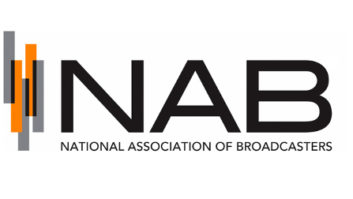The FCC’s indecency policy is not justified by the famous Pacifica court ruling and “cannot be squared with [the Supreme Court’s] First Amendment jurisprudence.”
That’s the position of the National Association of Broadcasters and the Radio Television Digital News Association, which laid out their positions in a “friend of the court” brief in cases involving the FCC, ABC and Fox TV.
They said the justices should affirm a lower court’s earlier decision that FCC indecency policy is void for vagueness.
NAB and RTDNA believe that the way the FCC indecency policy is applied has had a “dramatic nationwide chilling effect on broadcast content that is not actually indecent.”
“In the guise of performing ‘contextual’ analyses,” they argue, “the commission is actually making its own subjective judgments about what content it deems valuable, and what content valueless. Broadcasters are left to guess at how the policy will apply to them — and there is not just a risk but actual evidence that the policy is being applied in a discriminatory manner.”
They said the problem is made worse because the FCC refuses to act on petitions for reconsideration or oppositions to notices of apparent liability regarding many indecency complaints, “which forecloses these commission decisions from judicial review. Indeed, the commission’s procedural maneuvering appears designed to ensure that its most vulnerable orders never leave the commission and thus can never be reviewed by a court.”
Thus, they said, broadcasters “cannot be sure exactly what the law is and consequently steer far clear of anything that is even arguably indecent.”
Local and independent broadcasters in particular feel a “chilling effect,” they concluded.
“These are the entities least able to afford the types of delay and blocking technology on which the government places so much emphasis. These are also the entities that provide much of the nation’s local live news coverage, which is particularly imperiled by the commission’s indecency policy. Fearing major fines as a result of live coverage of an event at which a passing expletive may be uttered or nudity fleetingly depicted, broadcasters are reluctantly choosing not to cover certain kinds of events or air certain types of stories or programs at all.”
The Supreme Court, they wrote, has never cited scarcity of broadcast spectrum as a basis for regulating broadcast content. “If anything, the government’s position as licensor selectively allocating broadcast spectrum resources counsels against permitting content-based restrictions. As to the pervasiveness of broadcast media, even the government acknowledges that broadcasters face stiff competition from cable and other sources of news and entertainment that are not subject to the commission’s censorship.”
This, they said, does not translate into greater justification for government restrictions on broadcasters. The commission’s altered indecency policy, they feel, has “reversed years of a more considered and restrained approach that showed greater sensitivity to the free speech interests of broadcasters and journalists around the country.”
You can read the full filing below.












